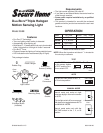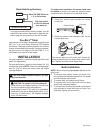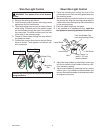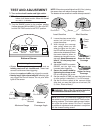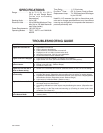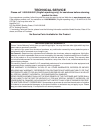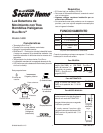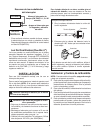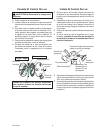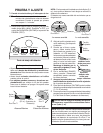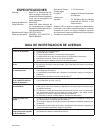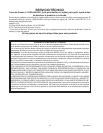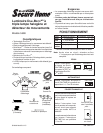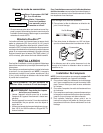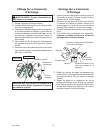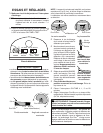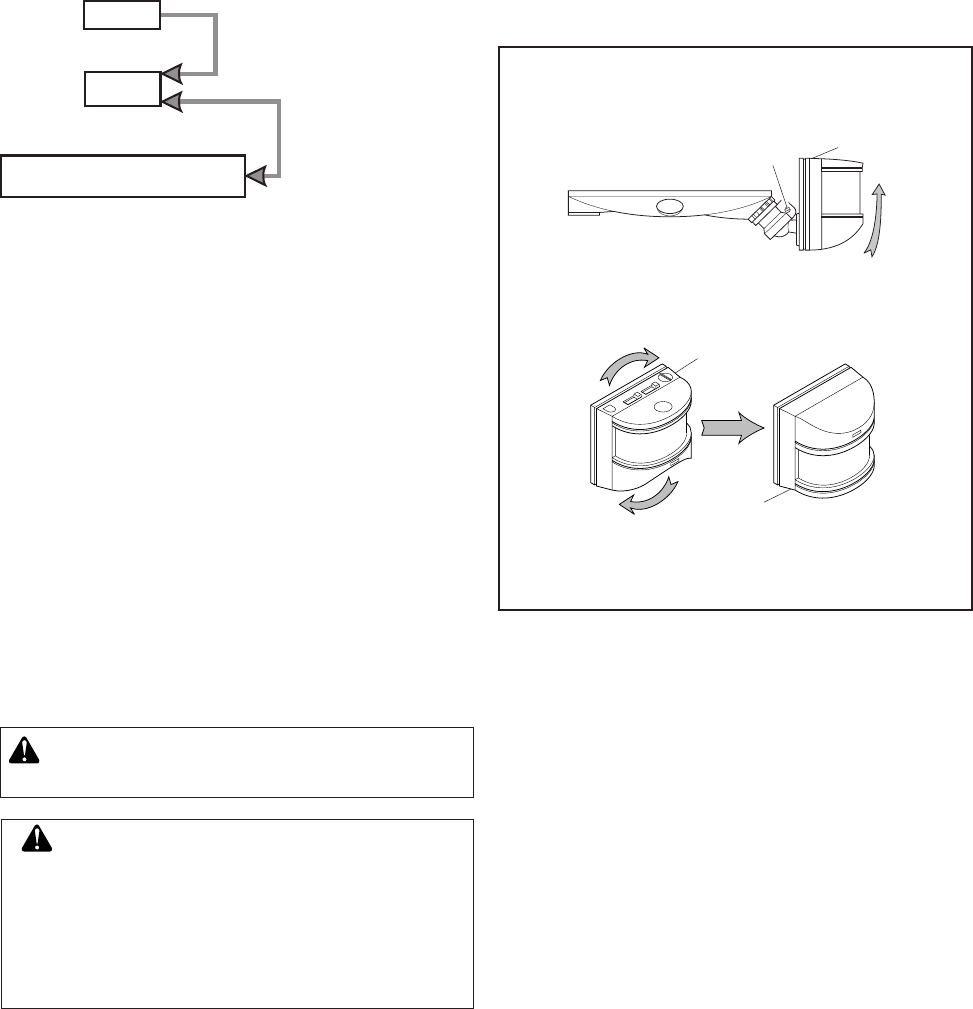
2
598-1346-00
Move ON-TIME Switch to
1, 5, or 20 minutes
Mode Switching Summary
Flip light switch
off for one second
then back on*
MANUAL MODE
AUTO
TEST
* If you get confused while switching modes, turn the
power off for one minute, then back on. After the cali-
bration time the control will be in the AUTO mode.
DualBrite
®
Timer
Light comes on half bright for selected time after dusk
(Off, 3 hr., 6 hr., until dawn). Selecting OFF disables
this feature. The motion sensing features will continue
to work as described in this manual. If motion is sensed,
the light turns on full bright for the ON-TIME (1, 5, or
20 minutes) then returns to dim mode.
Bulb Installation
NOTE: When re-lamping, turn power off and let the
fixture cool.
❒ To remove lamp shade, loosen set screw 2 full
turns with a small flat-head screwdriver. Turn shade
counterclockwise and remove.
❒ To remove bulb, pull straight out of fixture.
❒ To replace bulb, firmly push bulb pins into lamp
socket until completely seated.
❒ To reinstall lamp shade, place shade on fixture and
align notches on shade with tabs on fixture. Turn
clockwise. Tighten set screw firmly.
INSTALLATION
For easy installation, select an existing light with a wall
switch for replacement.
For best performance, mount the fixture about 8 ft. (2.4
m) above the ground.
NOTE:
If fixture is mounted higher
than 8 ft. (2.4 m), aiming the sensor down will reduce
coverage distance.
CAUTION: To Avoid Fire Or Burn Hazards:
• Allow fixture to cool before touching. The bulb and
the fixture operate at high temperatures.
• Keep fixture at least 2" (51 mm) from combustible
materials. Do not aim at objects closer than 3' (1 m).
• Use only T4 100W (max.), G8 tungsten halogen
bi-pin 120 VAC bulbs.
CAUTION: Keep the sensor at least 2" (51 mm)
away from the bulbs.
❒ Swing the sensor head towards the clamp
screw joint.
For eave mount only:
❒ Rotate the sensor head clockwise 180° so the
controls face down.
Controls
Controls
Clamp Screw
Controls
If the sensor pops out of the ball joint, loosen the
clamp screw and push the sensor back into the ball
joint. Tighten the clamp screw when done.
For under eave installation, the sensor head must
be rotated as shown in the next two steps for proper
operation and to avoid the risk of electrical shock.



